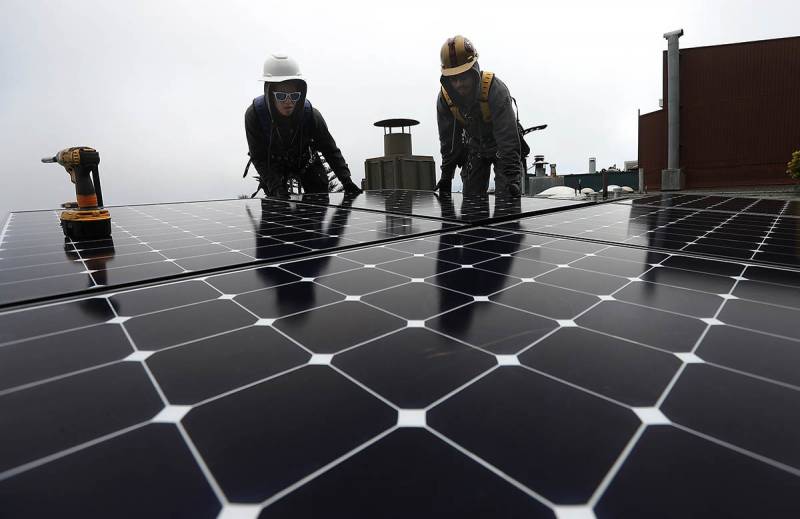In the past year alone, deadly floods and heat waves took lives across the U.S. — extreme weather events that are only expected to intensify on a hotter planet. Over the summer, record-breaking heat killed more than 200 people in the Pacific Northwest. The temperatures, reaching 116 degrees in some places, would be “virtually impossible” without climate change, according to scientists with the World Weather Attribution collaborative.
Worldwide, scientists have found emissions need to fall 55% by 2030 to limit warming to a crucial threshold: 1.5 degrees Celsius. The majority of fossil fuels, like coal and oil, would also need to stay underground by 2050.
What the Biden administration wants
Programs in the Build Back Better plan are designed to tackle the country’s two largest sources of emissions: transportation and electric power. Homeowners would get incentives to install rooftop solar and insulate their homes to become more energy efficient. Electric car rebates would grow to $12,500 for a middle class family. Clean energy companies would receive tax rebates for manufacturing in the U.S., since China currently produces the majority of solar panels worldwide.
Manchin, whose family profits from a coal business in West Virginia, has taken issue with several climate provisions in Build Back Better over months of negotiations. Earlier this year, he pushed to strip another clean energy program from the bill. The $150 billion Clean Electricity Performance Program would have used carrots and sticks to get electric utilities to use carbon-free power sources, but it was removed from the bill.
Withdrawing his support altogether on Sunday, Manchin singled out the climate policies as one reason. “The energy transition my colleagues seek is already well underway in the United States of America,” he said in a statement.
“Devastating,” Princeton energy professor Jesse Jenkins tweeted in response. “Utter nonsense.”
While solar and wind power are growing rapidly in the U.S. due to their falling cost, scientists warn that trend isn’t happening fast enough on its own to achieve the emissions cuts that are needed. Several analyses of the Build Back Better bill show that while it alone is not enough to cut emissions half, it could put the goal within striking distance.
“We need to be moving two times faster than we ever have before,” Stokes says. “So we need the federal government to invest in climate action to make it cheaper for everyday Americans to put solar panels on their roofs, to insulate their homes, to get an electric vehicle if they want one.”
Climate experts warn against the cost of inaction
Manchin, as well as Republicans, have argued against the overall cost of Build Back Better. But climate experts warn that the long-term cost of increasing disasters and damaged infrastructure could be dramatically higher.
“The stakes for the country are too high,” said Manish Bapna, president and chief executive of the Natural Resources Defense Council. “Inaction would cripple our economy, as climate costs and dangers rise.”
Without legislation, the Biden administration could rely on new regulations, like limiting power plant emissions through the Environmental Protection Agency or putting tougher mileage standards on cars and trucks, which are expected to be announced shortly. Those kinds of rules can be reversed by future presidents and lack the major financial incentives that Biden was counting on in Build Back Better to ease the country into a clean energy transition.
Copyright 2021 NPR. To see more, visit https://www.npr.org.
9(MDAxOTAwOTE4MDEyMTkxMDAzNjczZDljZA004))

9(MDAxOTAwOTE4MDEyMTkxMDAzNjczZDljZA004))
